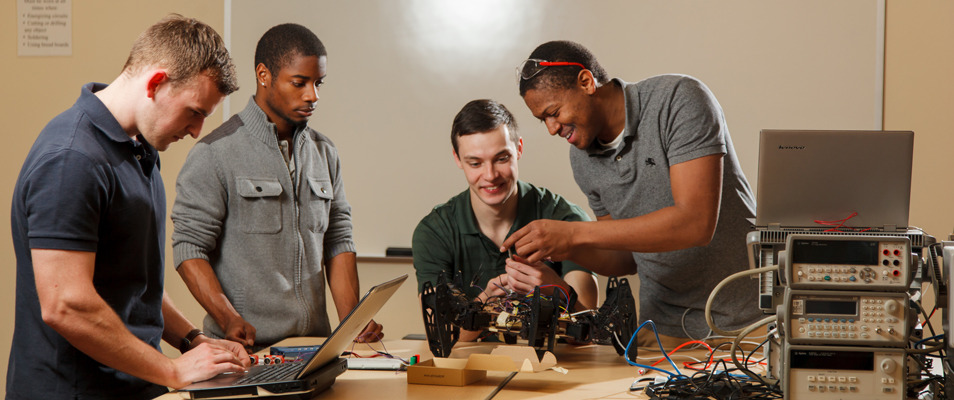Student Involvement

Why Should You Get Involved?
- To explore your passions and develop new ones
- To experience your education in a tangible way
- To receive guidance from a faculty mentor
- To contribute to meaningful conversations in your field of study and be a part of something bigger
- To compete for awards at various research competitions including Liberty’s Research Week
- To make an impact in your field by finding answers to previously unsolved questions
- To develop marketable skills that will give you an advantage in a post-grad job search
- To cultivate creativity, curiosity, and critical thinking

My Research Shows What I Am Passionate About
“For me, conducting research is much more than just listing several mastered laboratory techniques on my CV or several hundred hours of extracurricular experience on my medical school application. My research shows what I am passionate about, it represents a variety of experiences that have taught me critical thinking, leadership, and initiative. Being able to develop a publishable research project from start to finish as an undergraduate has prepared me to conduct further, more advanced research, particularly in a clinical context alongside my future role as a physician.”
Levi Schiefer
How Do You Get Involved in Research?
- Identify an area of research that excites you.
- Connect with your professors to find a faculty mentor- someone in your field who is currently working on a research project or is willing to guide you through your research journey. A list of current faculty mentors and their disciplines can be found below.
- Attend workshops offered on campus and various research clubs that are within departments.
- Use resources located at Liberty including the Jerry Falwell Library’s extensive research database.
- Apply for research funding.
- Check out our additional resources.
Words and Acronyms to Know
- Research Week: A week-long research competition held in April where Liberty students showcase their hard work and expertise while competing for cash prizes.
- Faculty Mentor: A faculty member who supervises you during the research process and guides you through the ups and downs of the endeavor
- JFL: The Jerry Falwell Library who hosts Research Week and has many wonderful resources to help you conduct research.
- NCUR– an annual conference hosted by the Council for Undergraduate Research to bring student scholars together and share knowledge. Location varies all over the county from year to year
- NURVA– the Network for Undergraduate Research in Virginia conference- an annual conference that brings together student scholars from the state of Virginia
Student Learning Outcomes (SLO)
- SLO1: Demonstrate the ability to articulate the value of research and a basic understanding of the role of research and scholarship in the life of a university student.
- SLO2: Develop the knowledge and skills required to engage in research and scholarship.
- SLO3: Design a research proposal/project that is discipline-specific.
Curricular Actions
In order to accomplish these learning outcomes, students in the undergraduate residential academic experience will build knowledge, values, and skills in research and scholarship through a scaffolding curriculum, which includes the following courses:
- Through the Inquiry 101 course, freshmen and transfer students will gain an understanding of the value of research and the role of research and scholarship in the life of a university student.
- Through the Research 201 course, sophomores and transfer students will develop the knowledge and skills required to engage in research and scholarship across the humanities, sciences, and creative arts.
- This research training experience will culminate in opportunities to take program-specific Research intensives (PDF) in which upper-level classmen will design a research proposal or project that is discipline-specific.
The RSD Framework/Rubric (PDF) acts as a guideline for the research-intensive course content and as a measure of the success of student achievement in designing a research project or proposal. Student acquisition of SLO #3 will be measured by the following rubrics based on the RSD framework.